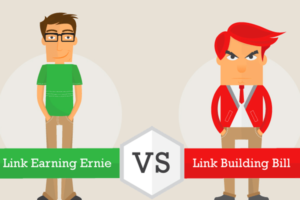Content Attributes
An aspect that is still little considered, even today, in modern SEO, is linked to the EAT SEO paradigm: and it is interesting to address it also to better understand what it entails for the optimization of our pages on Google.
EAT SEO: What it means
EAT SEO is the acronym of Expertise, Authoritativeness and Trustworthiness, or Competence, Authoritativeness and Reliability : undoubtedly three key factors for the positive evaluation of the web pages submitted to Google, and which should guide our copywriting in a simple and effective way .
This is especially true for informational research, for example, I would like to know more about a topic before evaluating, for example, the intervention of a technician. Typical case could be that of a problem with a light bulb: I can look for ” light bulb does not work”On Google and see, beyond the Google Ads announcements of electricians in the area, information on how to change one, on the types, on consumption, on where to buy it or who to contact to get help, provided that if it is not possible to do it alone.
Obviously this also poses further problems, including the possibility that you will find the telephone number of a Voghera technician while I would need it in Rome, but this is part of further evaluations that we will not do, at least not here, to avoid making it dispersive the argument.
In many cases, in fact, the problem of the pages that are not positioned, specifically as regards the dissemination of correct knowledge on a topic, is primarily linked to the competence of the writer: an account should be an article on SEO written by John Mueller, another account is the elusive Francesco Pasticcio (perhaps paid on Melascrivi or Freelance.com ) to write a generic article on ” How to position a website “. L ‘ authority, moreover, is a concept closely linked to the first, as well as the’ reliability, can be measured in terms of the seriousness with which the topic is addressed, level of in-depth analysis and ability to answer questions (or the researches we try to optimize for). Usually, articles and pages that are well-positioned have the merit of providing actually a response to the query, not simply to turn around it and provide surplus information ).
EAT in detail: how it is used to review the quality of content for SEO
To write on WordPress you don’t have to be part of the development team. Position yourself on “led bulbs” you don’t have to be a relative of Edison; to talk about diets you don’t have to be a doctor. The guidelines that Google proposes to critically review its content is full of nuances and middle ground and is linked to a series of questions that every “penalized” webmaster should ask himself, and have been divided into four homonymous groups.
Do not take these indications too literally, if I can give you a suggestion: they must not be blockers, but read proactively and positively, as well as interpreted in relation to your needs. Some points, however, in my opinion, may not be applicable to all cases. These are the questions that are asked to the quality rater in the reporting tests that Google has periodically carried out every year (read my interview with a Google quality rater, to better understand what it is).
Each question can have an answer with various gradations (of the type very, little, enough, not at all ) which could, according to a criterion easy enough to guess, have a positive or negative weight (I don’t say directly on the ranking, which becomes too much complicated to predict) but at least on the quality rate of the page itself.
Content and Quality
- Does the content of your page provide original information, reporting, analysis or research?
- Does it provide an understandable, substantial or complete description of the topic?
- Is the information really useful or is it simply obvious?
- Is the information taken from other sites, or do they give really useful and original information?
- If they are taken from other sources, are they reported critically or uncritically?
- Does the page title provide concise, clear and understandable information?
- Does the page title go too far in form or tend to be misleading ( likely referring to click-baiting, editor’s note)?
- Would you share this page with a friend (this is essential to understand how reliable this content is, so to speak)?
- Would you expect this content to be mentioned in a book or in an encyclopedia (obviously if you are optimizing ” Tiburtina pizzerias ” the speech, here, should not be worth, ed)?
Competence
- Are there references on the page that are clear and give information on the author, proving their competence?
- Is the site authoritative in its sector, globally?
- Is the content written by a person skilled in the subject or not?
- Does the content have content-level errors, inaccuracies or the like?
- Would you be comfortable in following these directions for issues related to shopping or even your life?
The presentative aspect of the content
- Are there any grammar or syntax errors in the text?
- Is the content accurate or does it seem to be written in a hurry?
- Does the content seem to be mass-produced or reproduced by various authors, each of whom republishes the same content elsewhere or on the same site, using only small variations?
- Are there too many ads on the page?
- Can the page be seen well from mobile, in particular with respect to its goal (for example, finalizing a purchase or solving the problem posed by the query)?
Comparative aspects
This is something that I tend to do during consultancy, in fact, which is to verify the “added value” of the page compared to the better-positioned ones of the competitors of that site.
- Does the content offer added value compared to that of other similar sites?
- Is the content really meant to help those looking for, or is it just aimed to stay on the front page by forcing the reality of things?
EAT: because it is useful for improving SEO
The EAT SEO approach is generally productive for SEO because it allows you to review the texts of your site in a reasoned way, especially if they are not written adequately with respect to the expectations of the reader: the Italian form is not always fundamental, for example, because it is so accentuated if I am researching a book, for example, and much less if I am looking for an electrician.
Host opinions from qualified experts in your industry fact, it can be a substantial improvement for your website, even if it is always the SEO consultant who evaluates the opportunity to do it or not. Not to mention that, in fact, Mario the electrician may have some problems writing well technical texts that answer questions, and this editorial model could (in the long run) risk-taking the site out of the target.
EAT SEO and some Google Core Updates
An article from the official Google blog What webmasters should know about Google’s core updates is illuminating in this sense, and explicitly talks about EAT SEO; the article warns that various updates are in progress to improve the search results a little at a time and with several successive “passes”, and above all, there are quality raters that evaluate or could evaluate your pages.
This is why it is less and less useful to reason only in terms of keywords and repetitions of the same because if a page is rejected by a quality rater (a content reviewer who works on behalf of Google) for lack of clarity, ambiguity and the like, it would be difficult to change his mind without changing the editorial approach to his site.
Even the BERT update, after all, which went rollout last November, would seem (the conditional is a must) to have reasoned thus, at least in part: the recognition of natural language could have had implications for texts written in a mechanical or automated way, and this is (unfortunately) typical of local businesses which still tend to republish the same content several times, changing only one or two keywords for each article.
Further very famous updates such as Panda and Penguin, moreover, confirm that the automatisms and loopholes to make link building or to produce content faster than competitors they seem to have an even shorter life, supplanted by the expertise and (hopefully) by the actual skills of those who write on the web.
Besides, anyone writes on the web, there is not only room for graduates (to say), but the essential thing remains to remain focused on the needs of those looking for our pages, and to give them “breath” by writing the contents in the way more adequate.



